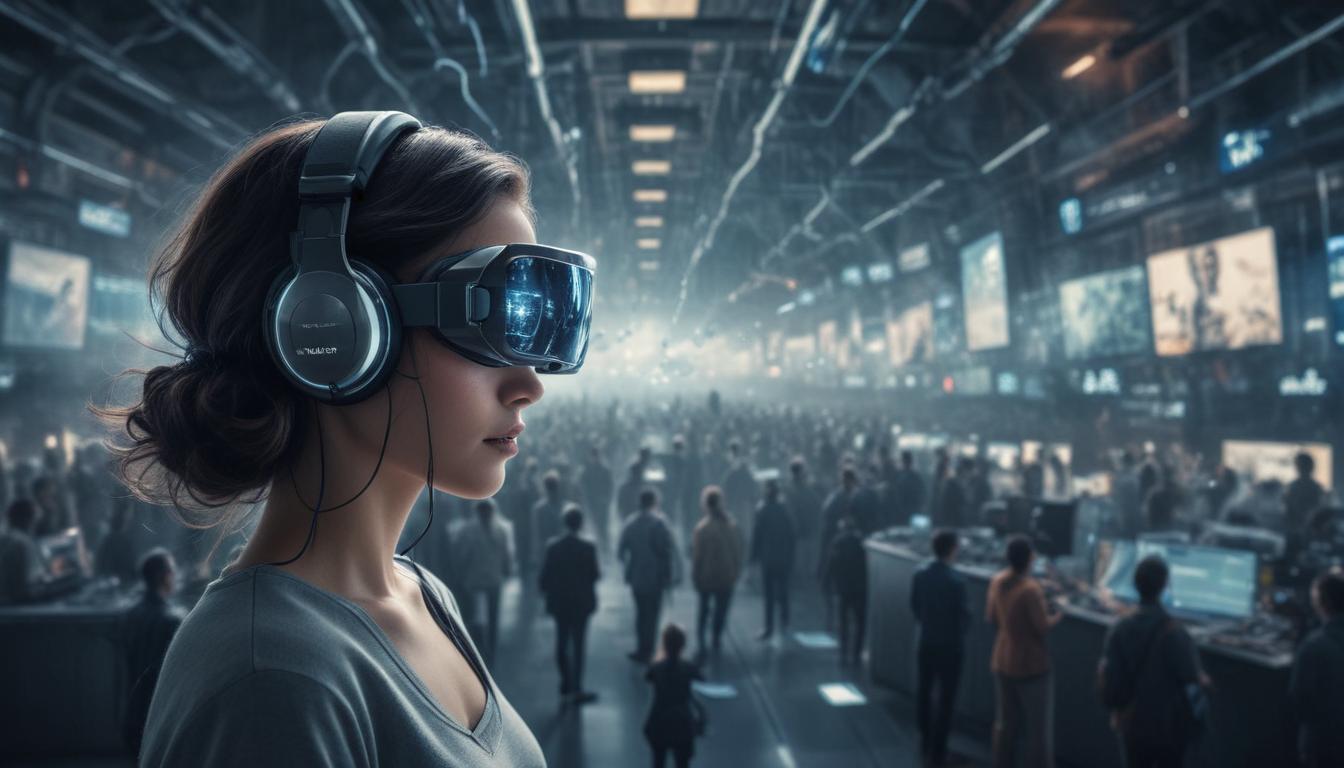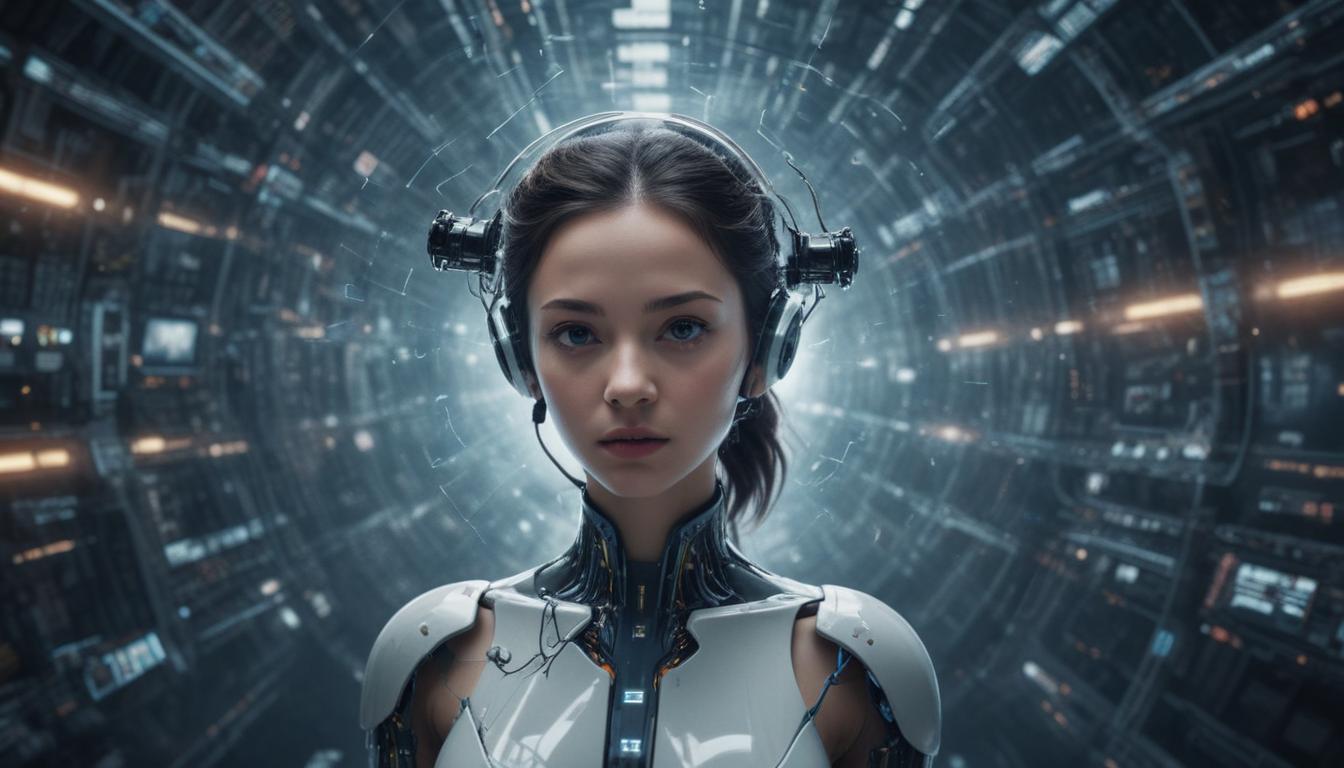Now Reading: How Technology Shapes Our World
-
01
How Technology Shapes Our World
How Technology Shapes Our World

The Unstoppable Force The Impact of Technology on Society
Does it ever feel like the world is changing faster than you can keep up? You are not alone. From the constant pings on our smartphones to the endless scroll of social media and the headlines about artificial intelligence, it is easy to feel overwhelmed by the sheer pace of technological advancement. It can be difficult to know whether we are living in a golden age of connection and convenience or a digital dystopia that is slowly eroding our humanity. The constant push and pull between the benefits and the drawbacks can leave you feeling confused and uncertain about the future.
This article cuts through the noise. We are going to take a clear, balanced look at the profound impact technology is having on the core pillars of our society. By breaking down how technology is reshaping our connections, our work, and our ethics, you will gain a deeper understanding of the world you live in. This knowledge will empower you to navigate the digital age with more confidence, making conscious choices about how you engage with the tools that are defining our time.
The Double-Edged Sword of Social Connection
There is no denying the revolutionary power technology has had on human connection. A generation ago, staying in touch with family across the country meant expensive long-distance calls. Today, you can have a face-to-face video chat for free with someone on the other side of the planet. Social media platforms have enabled us to find long-lost friends, build communities around niche hobbies, and even organize global movements for social change. This digital fabric has woven a new layer of accessibility into our social lives, creating opportunities for connection that were once unimaginable.
However, this constant connectivity comes at a price. The very platforms designed to bring us together can also foster a deep sense of isolation. We scroll through perfectly curated highlight reels of others’ lives, leading to a culture of comparison and anxiety. The algorithms that feed us content often trap us in filter bubbles and echo chambers, reinforcing our existing beliefs and shielding us from different perspectives. The paradox of our time is that we have never been more connected, yet rates of loneliness are on the rise. We are trading the depth of in-person interaction for the breadth of digital acquaintances, and the long-term effects on our mental well-being are still being understood.
Transforming the Way We Work and Learn
The professional world has been completely upended by technology. The rise of remote work, accelerated by recent global events, has untethered millions of employees from the physical office, offering unprecedented flexibility and work-life balance. Automation and AI are not just replacing repetitive tasks; they are creating entirely new job categories that require uniquely human skills like creativity, emotional intelligence, and complex problem-solving. This shift is creating a more dynamic and efficient workforce, but it also places a new premium on continuous learning and adaptation to stay relevant.
Similarly, education is experiencing a profound transformation. Access to information is no longer confined to the walls of a library or a classroom. Platforms like YouTube, Coursera, and Khan Academy have democratized knowledge, allowing anyone with an internet connection to learn a new skill, study a complex subject, or even earn a degree. Technology in the classroom allows for personalized learning paths, where software can adapt to a student’s individual pace and style. This revolution is making education more accessible, engaging, and effective than ever before, empowering individuals to take control of their own intellectual growth.

Navigating the New Economic and Ethical Landscape
Beyond our social and professional lives, technology is fundamentally rewriting our economic and ethical rulebooks. The rise of e-commerce has challenged traditional brick-and-mortar businesses, while the gig economy has redefined what it means to be an employee. In this new landscape, data has become one of the world’s most valuable resources. Every click, search, and “like” is a piece of data that we trade, often unknowingly, for the convenience of “free” services. This has created massive economic opportunities, but it has also concentrated immense power in the hands of a few tech giants.
This new reality forces us to confront difficult ethical questions. How much privacy are we willing to sacrifice for convenience? Who is responsible when an algorithm shows bias in hiring, loan applications, or even criminal justice? As AI becomes more sophisticated, we must grapple with issues of accountability, transparency, and the potential for misuse. Ensuring that technological progress aligns with human values is perhaps the single greatest challenge of our generation. It requires not just smart engineering, but also thoughtful regulation and a commitment to digital literacy for all citizens, so we can collectively shape a future that is not only innovative but also equitable and just.



































